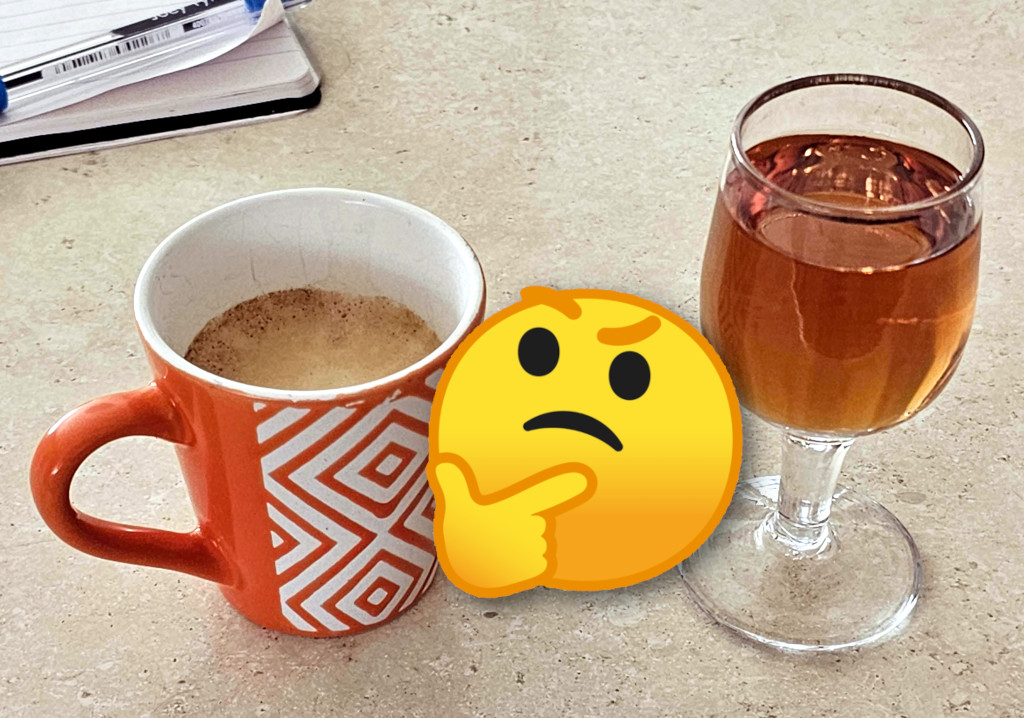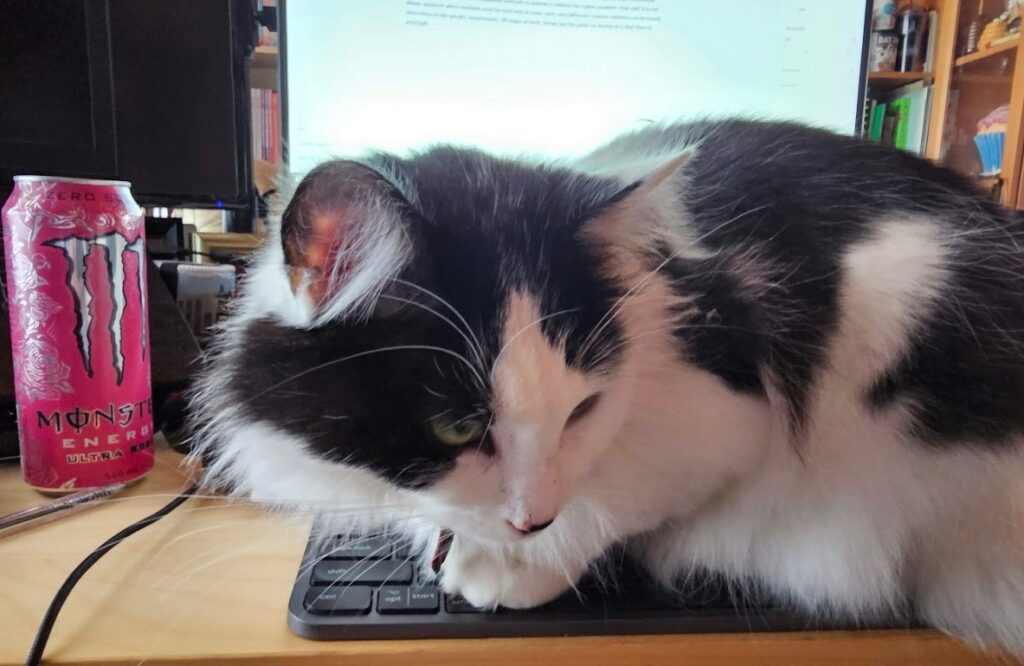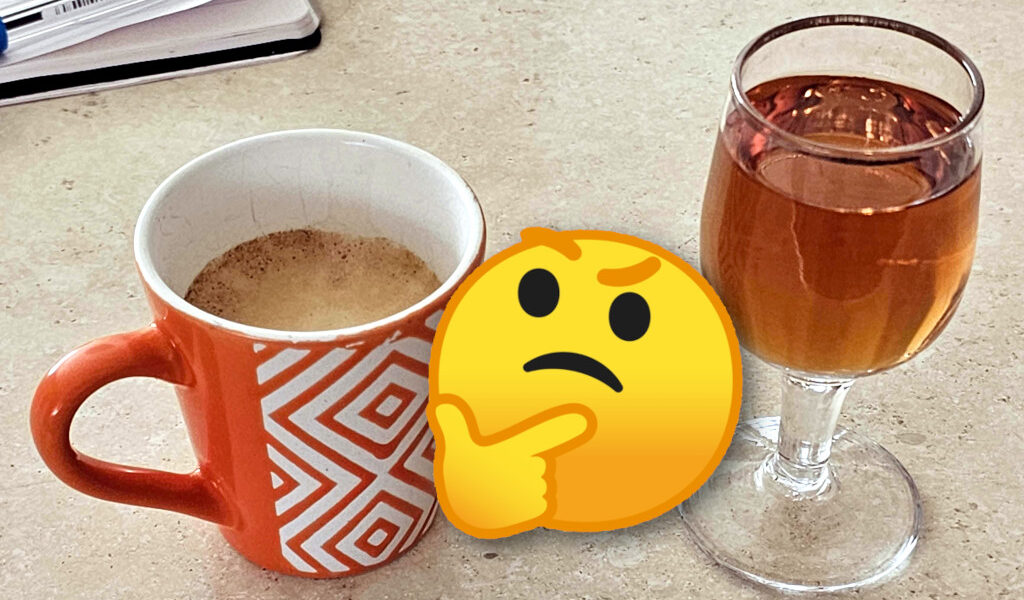I’ve been a software engineer for years and I’m well aware of (and have experience in) the effects of caffeine and alcohol when it comes to coding. There’s an established notion that writing code after imbibing brew has its positives, and that the productivity and quality can actually increase with intake… to a point, after which the quality and quantity takes a sharp nose-dive and you end up with a mess.
The same, I’ve found, is true for writing and I think the reason behind it is the same. Engineering is a technical profession and there are well established methods to achieve a solution for a given problem. That said, it is not always apparent which methods must be used and, in many cases, very different creative solutions can be found, depending on the specific requirements. All vague as heck, I know, but the point I’m driving at is that there is certain amount of artistry involved (which is why engineers can get tetchy about having their work peer-reviewed). Writing, in a broad sense, is the opposite. It’s artistry built upon a technical foundation of grammar, established patterns like story arcs, phrasing, tenses, and the like.

So how does caffeine and alcohol come into play? Let’s start with the former. Caffeine is a stimulant and acts to block adenosine receptors in your brain, so stops you from feeling drowsy. Perfect for a long day at the office, but is it good for writing? Without having performed any large number, double blind experiments, I can only go on what I have found, and the answer is a resounding, yes – within reason. I tend to start with a decent cup of coffee, maybe an espresso, before I sit down and start writing. Unless it’s, like, ten at night, in which case I do without (see below). Either way, I find a cup over the course of an hour is a good metric, before I then get up for another one.
Back to back cups is not a good idea, nor is having anything more than, say, three in three hours, otherwise my brain starts to shrivel, my legs get jittery and my typing becomes awful. Not only that, I find I get distracted a lot more and things that shouldn’t bother me become irritating. In short, rather than drive my brain at full throttle to squeeze out every last keystroke, it’s better to take a break, do something else, exercise, go for a walk around the block or have a chat to someone on the phone rather than go and make another cup. It ‘feels’ like I’m wasting time when I could be sitting at the keyboard but, in reality, I’m saving time by not having to go back over my work and fix mistakes. In fact, when proofing, I can spot regions where I know I’ve been jittery and have been simply too wired to care.
The same is true for coding. If there’s bread and butter, boilerplate code that needs doing and the process is very straightforward, a double-shot espresso can have me rattling out a two hour job in half and hour with tests attached to back it up. Sure, I’m knackered by the end of it and my fingers physically hurt from all the typing, but since there’s no real artistic component, what I’m left with at the end is a working, viable product.
So what about alcohol? This is an interesting one, and I’m not at all encouraging anyone to start the habit because alcohol dependency is nothing to dismiss lightly. I’m documenting this for posterity and to share my findings. Alcohol is kind of the opposite to caffeine in that it’s a depressant, it slows down your brain, and at the same time it relaxes you. At night, when I’ve done all my chores and have a free half-hour to get cracking, a tipple of whisky helps out. You’d think this would be utterly detrimental to typing, but it’s not. With coding, as with writing, a glass of wine or beer has an effect of making the flow of words easier, the generation of ideas freer. Without the hindrance of second guessing and strict adherence to formal patterns, the creative juices can really flow. It’s like taking off the tourniquete of conformity to let the blood of chaos run freely.
Just how loose should that tourniquete be? There’s the rub. One glass, and things start clicking. The plot holes you were going nuts over suddenly close up and you understand just why your character is left holding the idiot ball in the second act. Two glasses and the need for a visit to the far off land of Grongarna becomes apparent, along with the discovery of a new type of magic. Three glasses in and the ideas become muddled. What was the character’s motivation again? Why the heck did the Fire of Iscabam need to be brought back? The typing becomes laboured. Mistakes proliferate. What made sense before becomes dumbly confusing. Four glasses in and you might as well sit your cat on the keyboard.

Same with coding. That’s kind of what happens at the Christmas end of the year, when the beers start during the day and the code, as a consequence, suffers. I’ve only done that a couple of times and, both time, when I revisited what I wrote I threw the whole lot in the bin and started it again with many lamentations of, “Just what the hell was I thinking?”
Do I always write under the influence? I guess I do, if I’m honest. Usually it’s coffee or tea or, if I’ve hit the wall in the afternoon, a can of Monster. That said, I listen to what my body is telling me. Usually it’s, ‘get up and walk around’ or ‘go punch something in the garage’. I do tailor what I’m having with what needs to be done. At the start of a book, when I’m knocking up the skeleton, I’ll have cups of tea or coffee, since the process is quite formal and the underlying premise, theme and characters need a solid foundation. Then, while attaching meat to the bones, I’ll sit outside (bloody Melbourne weather permitting) with a glass of wine or a beer and let the creativity take over. At night, when I’m exhausted from the madness of the day, I’ll relax with a nip or two to help get over the hump or alleviate the accursed Writer’s Block. When going over the second or third drafts, looking for grammatical errors and the like, it’s coffee and tea all the way.
Whatever the liquid is, is imperative to drink plenty of water (a good idea at all times). Caffeine and alcohol are diuretics – they make you pee more. So too much of either will start to dehydrate you, and not only will you end up writing tosh, you’ll be getting headaches and getting distracted from having to toddle to the loo more regularly. That, and a dehydrated brain is a non-functioning brain, so if your intentions are to write more and write better, you’ll be working against yourself. If there’s anything to be said about all of this, it’s that it comes back to ‘everything in moderation’. Have a coffee, write like heck, then have a break. Have a wine, let the words flow, then have a break. Drink water, do exercise, don’t rush your story, pay attention to your family, sit up straight, wash behind your ears and don’t run with those you’ll put an eye out. Common sense, I guess.
On a side note, I’ve started looking up the effects of hallucinogenic and psychotropic drugs and their effect on creators in the past. Now, I’m not about to start with these, but I’m wondering how that would fit into creative process, if at all, and what kind of works came from it. Did the authors or painters use them deliberately? Did they regret what they created while under the influence? If I find out, I’ll post it here.


